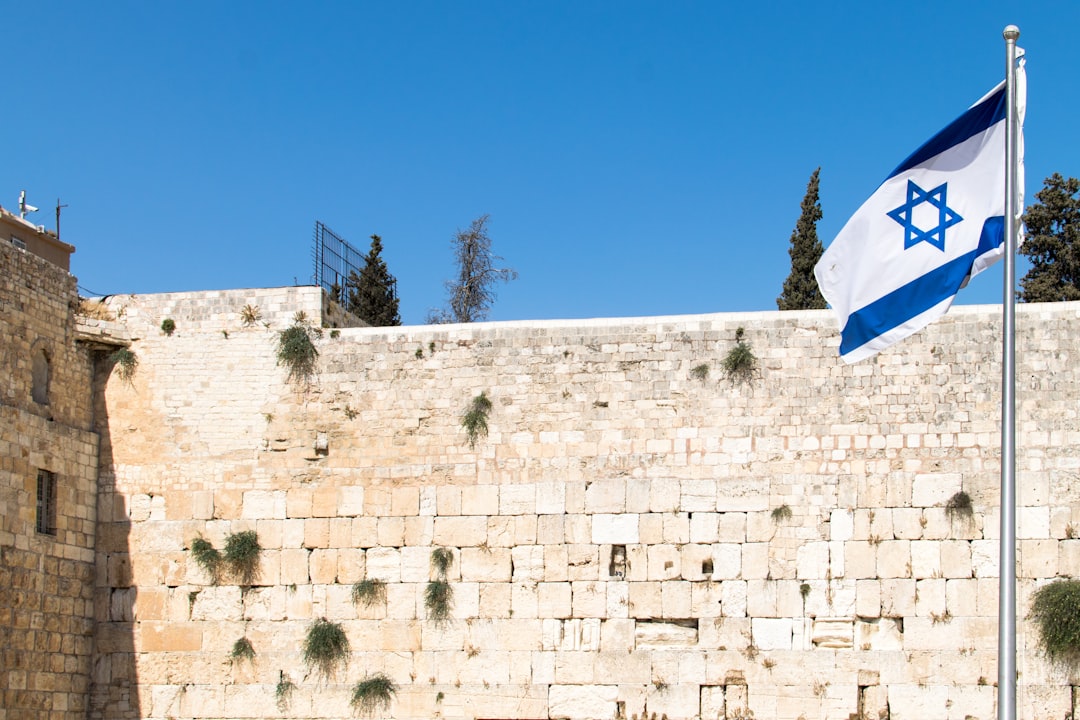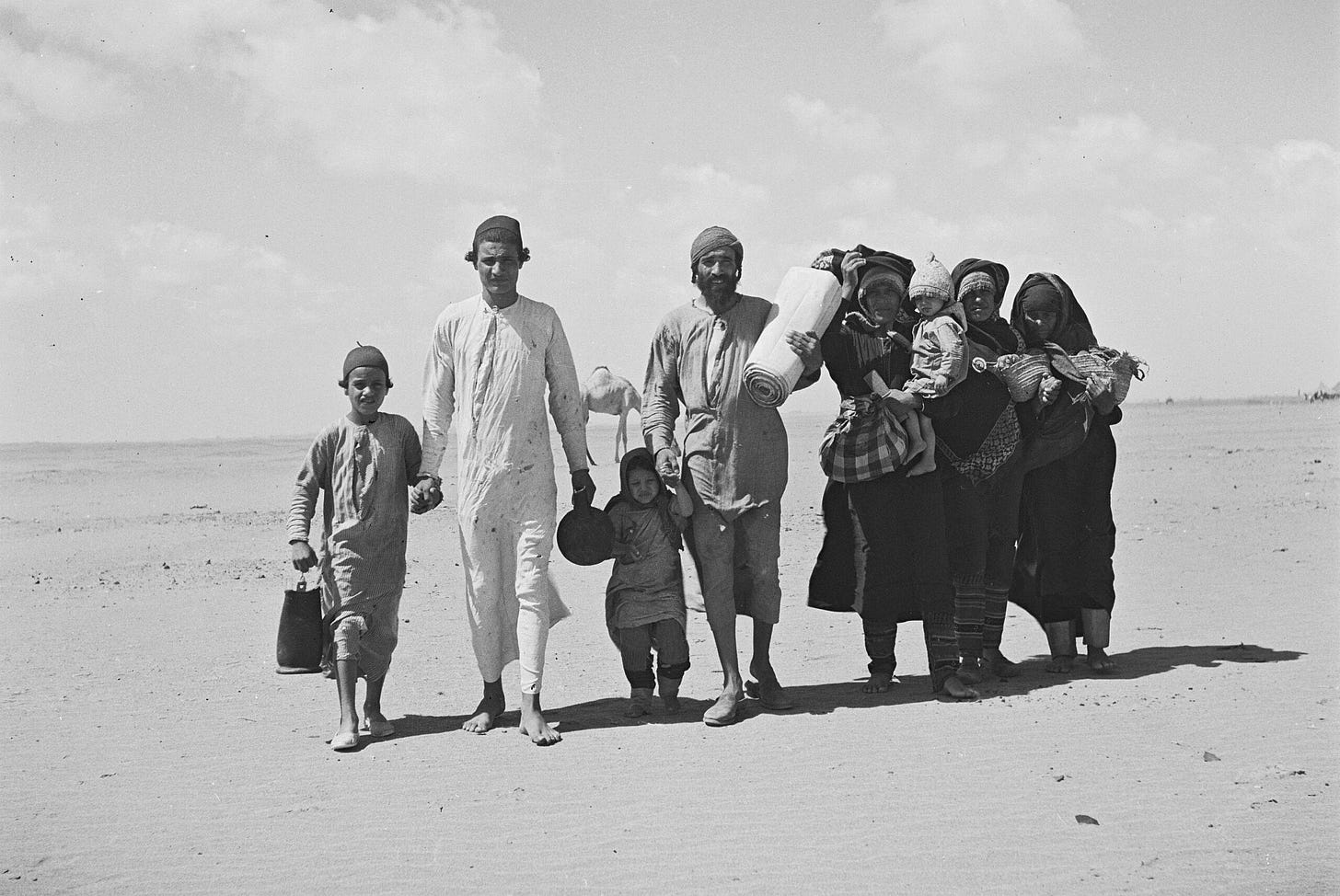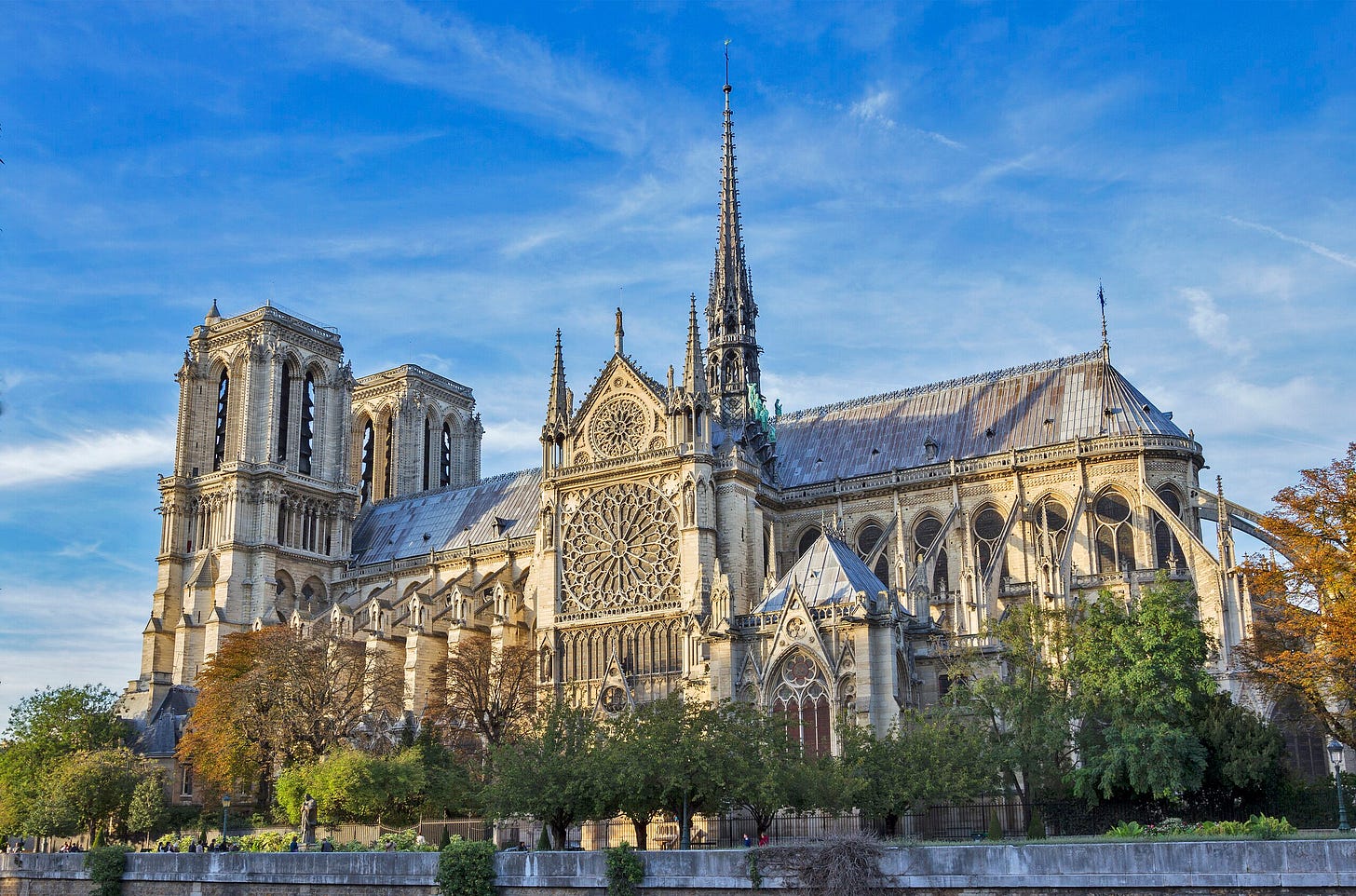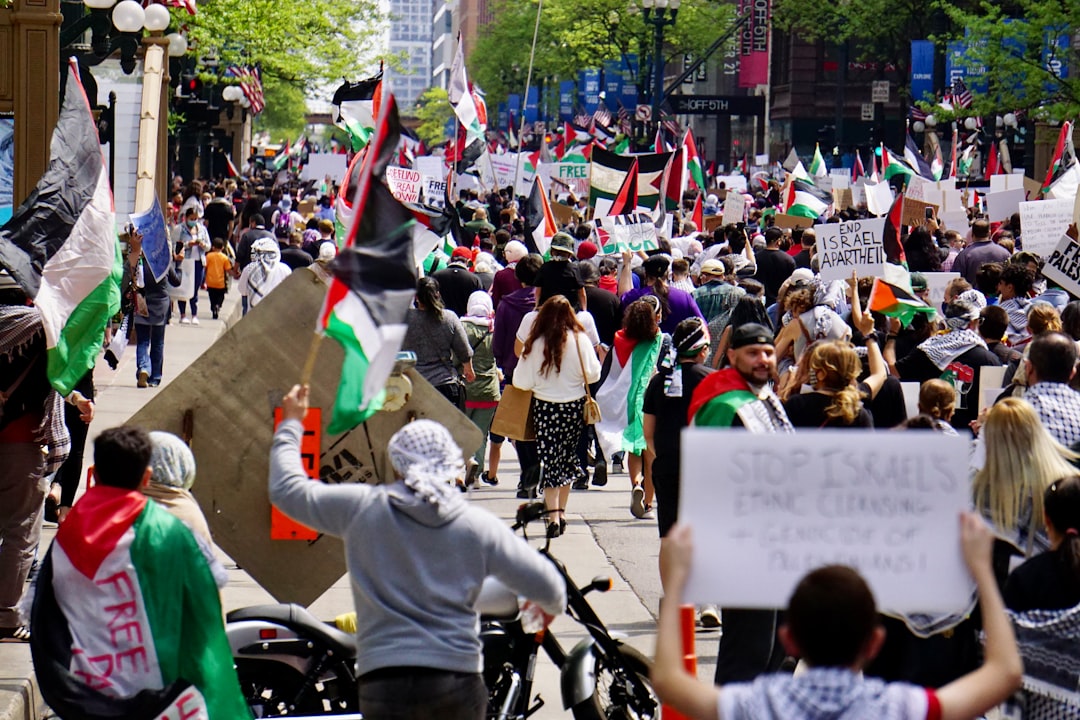Israel is completely misunderstood in the West. Here's why.
Literally and figuratively, Israel sits in the very middle of “the West” and “the East” — often taking the best from both worlds, but not quite fitting in to either one.
Please consider supporting our mission to help everyone better understand and become smarter about the Jewish world. A gift of any amount helps keep our platform free and zero-advertising for all.
You can also listen to the podcast version of this essay on Apple Podcasts, Google Podcasts, or Spotify.
So many people think that Israel is a Western country.
While it’s true that the Jewish state has a variety of Western attributes and certainly quite a few Western allies, Israel is not a Western country.
The country was founded primarily by European socialists and politically and socioeconomically run by them for the first three decades of the State of Israel’s existence, after it was founded in 1948 with only 806,000 residents.
But much has changed in the years since, thanks to a more than 10-fold population increase, largely due to immigration of Jews, including some 850,000 Mizrahi and Sephardic Jews who were expelled or evacuated from Arab and Muslim-majority countries from 1948 until the early 1980s. As of 2005, 61-percent of Israeli Jews were of Mizrahi or Sephardic ancestry.1
Historically, Mizrahi and Sephardic Jews are predominantly religious traditionalists and cultural conservatives. And, since they lived in relatively close proximity to the Palestinians and other unfriendly Arab neighbors by virtue of arriving to Israel later and with less money, in many ways these Mizrahi and Sephardic Jews were most affected by a poor handling of the Arab-Israeli conflict by the socialist Jews in political power, from the 1950s through the 1970s.
Not to mention, the years after the 1973 Yom Kippur War were a lost decade economically. Growth stalled, inflation soared, and government expenditures rose significantly. By 1984, the economic situation became almost catastrophic, with inflation reaching an annual rate close to 450-percent and projected to reach over 1,000-percent by the end of the following year.2
In 1973, the formation of Likud, the political party chaired by current Israeli prime minister Benjamin Netanyahu, gave more conservative-leaning Mizrahi and Sephardic Jews their first major political voice in Israel.
The biggest difference between liberal-leaning Jews and conservative-leaning Jews is that the former considers themselves Israeli Jews, whereas the latter sees themselves as Jewish Israelis.
“We vote according to our culture, we vote for those who do not underestimate our faith, our tradition, those who do not treat us as lacking understanding not able to decide and choose what is really important to us,” said Ben Shitrit, a producer and artistic director at one of Israel’s TV networks, adding that more conservative-leaning Mizrahi and Sephardic Jews “have different priorities that are no less legitimate.”3
For Westerners who are either totally secular or minimally inspired by faith and religion, it can be difficult to understand why so many Israelis are first and foremost concerned with the Jewish character of Israel.
According to Nissim Mizrahi, a sociologist from Tel Aviv University, the politics of universality (seen from a liberal point of view as key to correcting society’s ills) are experienced by Israel’s Mizrahi and Sephardic Jews as an identity threat, a problem rather than a solution.
This secular, liberal worldview can lead to “enlightened racism” which “tarnishes traditional, religious, ultra-Orthodox and other peripheral communities, and negatively labels their worlds, their way of life, and their culture,” Mizrahi explained, “which produces deep despair in liberals, as it turns out that they don’t have any visible option in their toolbox to buy a broad hold and win the elections.”4
“I call it liberal violence, for it is the distaste shown for any religious or national expression,” he added. “For example, strong and opinionated religious women oppose the description of gender segregation as exclusion. I don’t see how you can deny the reality that groups in society differ in their conceptions of good and bad and what a moral life is.”
This is what many Westerners either don’t understand or choose to ignore: All seven-plus billion people in the world do not subscribe to Western thought, and they do not agree on the same definition of human nature. In other words, “the West” is just one of several ideological frameworks, no better or worse than the others.
But what is “the West” exactly? It depends who you ask. For liberals, the West is the “Enlightenment” — democracy, human rights, individualism, science and reason. For conservatives, it might be a set of values: traditional attitudes toward family life and national identity, and probably broad support for free-market capitalism.
For the kind of post-modern liberals (also known as “progressives”) who currently dominate the culture, “the West” (presuming they agree it even exists) is largely a combination of colonialism, white supremacy, intersectionality, and other inexplicable injustices we hear about daily through their megaphones.
“All of these things could be true at the same time, but each is also a fairly recent development,” according to Paul Kingsnorth, a novelist and essayist. “The West is a lot older than liberalism, leftism, conservatism, or empire. It is at the same time a simpler, more ancient, and immensely more complex concoction than any of these could offer. It is the result of the binding together of people and peoples across a continent, over centuries of time, by a particular religious story.”5
Shortly after World War II, medieval historian Christopher Dawson explained that there has never been any singular organization within Western culture apart from Christianity.
“Behind the ever-changing pattern of Western culture, there was a living faith which gave Europe a certain sense of spiritual community, in spite of all the conflicts and divisions and social schisms that marked its history,” Dawson wrote.6
Accordingly, “the West” was borne out of a faithful story (a garden, an apple, a fall, a redemption) which shaped every aspect of life: the work week, the cycle of annual holidays and rest days, the education systems, the payment of taxes, the moral duties of individuals, the attitudes to neighbors and strangers, and the structure of families.
“The West, in short, was Christendom,” according to Kingsnorth. “But Christendom died. If you live in the West now, you are living among its ruins. Many of them are still beautiful — intact cathedrals, Bach concertos — but they are ruins nonetheless. And when an old culture built around a sacred order dies, there will be lasting upheaval at every level of society, from the level of politics to the level of the soul.”
Within the proverbial mainstream, Christendom expired across centuries for a complex set of reasons, but it was not killed off by an external enemy. No hostile army swept into Europe and forcibly converted us to a rival faith. Instead, we dismantled our story from within. What replaced it was not a new sacred order, but a denial that such a thing existed at all.
The Enlightenment project of the 18th century was an attempt to build a “morality” (a word that had not existed in this sense before that time) disconnected from faith and religion.
“It was the project of constructing a wholly new human being After God, in which a new, personal moral sense — no longer eternal in nature, or accountable to any higher force — would form the basis of the culture and the individual,” according to Kingsnorth.
If every culture is developed around a sacred order — whether Christian, Jewish, Islamic, or Hindu, the veneration of ancestors or the worship of a god — then the collapse of that order will lead inevitably to the collapse of the culture it supported. There is a throne at the heart of every culture, and whoever sits on it will be the force we take our instruction from.
The modern experiment has been the act of dethroning both literal human sovereigns and the representative of the sacred order, and replacing them with totally human, totally abstract notions — such as “the people” or “liberty” or “democracy” or “progress” or “freedom” or “justice” or “humanity.”
I’m all for democracy (the real thing, though, not the corporate imitation and political gymnastics currently in its place), but the dethroning of the sovereign (Christ) who sat at the heart of the Western sacred order did not lead to universal equality and justice. It led to the utter triumph of unadulterated capitalism (i.e. the power of money), which has undermined our cultures and our souls.
The vacuum created by Christendom’s collapse was filled by the poisonous gas of consumer capitalism. It has now engulfed every aspect of our lives in the way that the Christian story once did, so much so that we barely even notice as it colonizes everything — from what we eat, to education and media, to the values we teach our children.
We’ve become addicted to individualism and the power of money, which has made everyone a proverbial “prostitute” — each with their own asking price, some more expensive than others.
For example, at least 200 American colleges and universities received approximately $13 billion in undisclosed contributions from foreign regimes, many of which are authoritarian, to influence Western academia and keep administrators quiet about, say, the Palestinian massacre in Israel on October 7th.7
Hence why “the West” has become, at least in some places, void of living virtues. Meanwhile, its counterpart, “the East,” is in many ways overly virtuous, characterized by ideology, hegemony, and tribalism. It’s no coincidence that today’s most powerful king lives in Saudi Arabia, not England, and that the world’s only country with a “Supreme Leader” is also in the Middle East.
As lamentable as these regimes (and other non-Western ones like those in Russia and China) are, they have a few clear advantages over “the West.” For example, they play the long game. While democratic governments are on a perpetual seesaw between the Right and Left, whereby each side cancels or overrides the other’s policies every few years, non-democratic regimes can dominate foreign policy with consistent, lasting plans. In a globalized world, this translates into game-changing leverage.
Literally and figuratively, the State of Israel sits in the very middle of “the West” and “the East” — often taking the best from both worlds, but not quite fitting in to either one. For this reason, the Arabs see Israel as a foreign creature. And they fear its existence as the only Western semblance in the Middle East. They feel that Israel endangers their culture, their religion, and the structure of their society and regimes.
Back in “the West,” Israel’s nationalist doctrine (i.e. Zionism) doesn’t sit well with Westerners who aspire to create a post-nationalism world. Throughout post-war Europe, the aims of “love and peace” have become overwhelmingly dogmatic standards for the Westerner, the democratic citizen.
These “love and peace” campaigns, invented in the 1950s by Soviets during the Cold War, encouraged people with banners of all kinds to march against America and the atomic threat, as well as in defense of the Cuban revolution, pro-Soviet African revolutions, and then the Palestinians.
At the outset, Jews were considered allies among Communist sympathizers, given what they had suffered during World War II from the Right, the Nazis, and the Fascists. Some Jews, for their part, sought a relationship with the Left to feel “at home” in Europe, North and South America, South Africa, Australia, and elsewhere.
But many Israeli Jews, unlike many Western Jews, understood that the West has become dangerous for Jews again, not because the enemies of tolerance, liberty, and freedom are strong, but because the democracies who defend these values are weak.
When governments overlook chants like “Gas the Jews!” and “Intifada worldwide!” in the name of “free speech,” and when Islamic jihad and such sympathizers are protected by “freedom of religion” — yes, Western governments are weak.
There is only one type of society where Jews have been safe: democracies. When these societies become weak, decayed, and distressed, Jews become endangered. This has always been so, from antiquity through today.
“The single most important thing about Israel that most people do not understand is that the Jewish state was founded on a reasonable and historically justified skepticism about the ability of the liberal order to protect Jews,” said Walter Russell Mead, a professor of foreign affairs and humanities at Yale University (who’s not Jewish).8
Many people think that liberal immigration policies have imperiled “the West” — but this is only one side of the coin. These policies wouldn’t have turned out to be such a disaster if organized, effective immigration infrastructure enabled Western countries to adequately absorb and assimilate newcomers.
Historian Niall Ferguson said the failure has been in not explaining to immigrants “what the deal is if you come to a new society. You have to accept the norms, the laws of that society. And if you don’t, if your allegiance remains to some other power, then you’re not fulfilling your side of the implicit contract.”9
Not all immigrants are created equal, though. Latin American immigrants in the United States might have illegally made their way there, but you rarely hear about Latin Americans championing a downfall of “the West.”
Muslim immigrants are a different crop, because they often bring with them an immense devotion to Islam, which is a religion as much as it is a political doctrine. In other words, there are profoundly different sociopolitical traditions between Islam and “the West.”
“The whole point about Islam is that it doesn’t recognize a distinction between mosque and state, the way that Christianity recognizes a distinction between church and state,” Ferguson said.
Hence why, in much of the Middle East and North Africa, society is fundamentally unstable. Lawrence, who knew Arabia well, compared it to shifting sand that one moment speaks quietly and the next turns into a storm.
“It is a society that has a strong tendency for violence, a society that can only exist under the rule of tyranny. It is a society that is overly preoccupied with genius, pride, and victory. It is a society that in a certain sense is still characterized by the ancient mentality of ancient times,” said historian Benzion Netanyahu.
“And when the combination of this ancient mentality with the modern weapons of destruction is created en masse, the conditions will be created for the emergence of global shocks, and in my opinion a threat like no other was created, not only for Israel, but for the entire West.”10
Even then, the same superficial attitude that existed in Europe with regard to Nazi Germany, has existed for decades with regard to the radical Arabs. The same disregard for the dangers. The same tendency for appeasement. And this similarity is not accidental, because this trend is the same trend. This rot in “the West” is the same rot. This blindness is the same blindness as in Neville Chamberlain’s time.
Brought on by wealth, success, and technical progress, this blindness is leading “the West” into degeneration, to a marked tendency to ignore historical developments internally and externally. And those who have no sense historically, also have no sense of the present. They do not understand what is emerging around them, and they do not grasp what awaits them beyond the very thing in front of them.
Instead, many Westerners write off these possible threats by making claims like “Most people in the world are peaceful and want the same things” — things like basic rights, shelter, and a decent-paying job. Sure, most people in the world might be peaceful and want these same things, more or less, just not according to the same set of circumstances.
For example, most Palestinians might be peaceful, just not while living next to a Jewish state that they’ve been brainwashed to believe was stolen from their parents and grandparents.
And yet many Westerners, fooled by a heavily biased and morally corrupt media, continue to “root for” the Palestinians. There is no good reason for Westerners to root for them, just as there is no good reason for Westerners to root for the Sudanese, the Yemenites, or the Syrians. These people have done nothing for “the West” and it’s probably safe to say they’ll do nothing for it.
If the Palestinians were absorbed tomorrow by Egypt and Jordan, nothing in “the West” would change, while the Arab and Muslim worlds would have one less argument to unreasonably despise Israel and its Western elements.
Speaking of the Arab and Muslim words, it’s been about 1,200 years since Charlemagne’s armies stopped the Moors south of the Pyrenees, a mountain range straddling the border of France and Spain, after they tried to penetrate Europe. And it’s been about 300 years since the Turks were repelled from the gates of Vienna.
These actions by the Moors and the Turks were mainly imperialist, something from the ancient Islamic impulse. Now, again, we are facing the possibility of another surge, driven by an Iranian regime that is in cahoots with Putin, North Korea, and maybe even China. Why? Because radical Islam has continuously sought to enslave non-believers.
If these two previous attacks had not been thwarted, the whole of human history would have been different. We would not have had the 500 years of European modernity, our entire cultural formation.
But now, in our time, the genie of the Arab-Muslim threat has been let out of the bottle again. As a result, we are now going back 1,200 years, because certain Islamic countries and movements have at their disposal unlimited treasures of money, which they use to acquire war technology of the most superior kind.
Thus, the threat today is greater than ever before — and Israel is at the epicenter of this huge collision, in a state of obvious danger. Yet the Jewish state isn’t just tasked with saving itself. Ironically, it is also the first line of defense for the greater Western world.
Many people in “the West” just haven’t realized it yet.
“Mizrahi Jews.” Wikipedia. https://en.wikipedia.org/wiki/Mizrahi_Jews.
Eleventh Knesset. https://knesset.gov.il.
“Why the right-wing Mizrahi vote is misunderstood in Israel.” Middle East Eye. https://www.middleeasteye.net/news/israel-why-right-wing-mizrahi-vote-misunderstood.
“Why the right-wing Mizrahi vote is misunderstood in Israel.” Middle East Eye. https://www.middleeasteye.net/news/israel-why-right-wing-mizrahi-vote-misunderstood.
“The West has lost its virtue.” UnHerd. https://unherd.com/2021/08/why-the-west-will-collapse.
Dawson, Christoper. “Religion and the Rise of Western Culture: The Classic Study of Medieval Civilization.” The Crown Publishing Group.
“THE CORRUPTION OF THE AMERICAN MIND: HOW CONCEALED FOREIGN FUNDING OF U.S. HIGHER EDUCATION PREDICTS EROSION OF DEMOCRATIC VALUES AND ANTISEMITIC INCIDENTS ON CAMPUS.” NCRI. https://networkcontagion.us/wp-content/uploads/NCRI-Report_The-Corruption-of-the-American-Mind.pdf.
Mead, Walter Russell. “The Arc of a Covenant: The United States, Israel, and the Fate of the Jewish People.” Knopf. July 5, 2022.
“Israel, Islam & the New Cold War | Niall Ferguson.” John Anderson. YouTube.
“Ben-Zion Netanyahu in an interview in 1998.” Haaretz. https://www.haaretz.co.il/news/education/2012-04-30/ty-article/0000017f-dba2-df9c-a17f-ffbaff610000.







I love when more eloquent people give words to my nebulous thoughts. This really cuts to the heart of the issue, and you’re correct-I’m American and very few ppl here seem to understand any of this. And since my skin lacks melanin, they just accuse me of being “racist” or “Islamophobic” for even attempting to explain. They seem to be ushering in and championing their own demise in the name of “social justice,” and any disagreement is seen as “Zionist propaganda.” There seems to be no way to get through to them, and I fear they will learn the truth too late.
Excellent essay. Spot on. Words to the wise for The West.